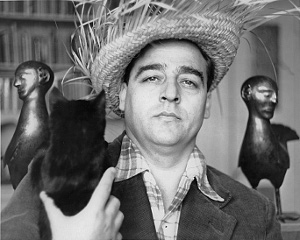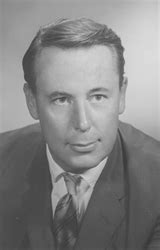A Quote by Ludwig Wittgenstein
Where does our investigation get its importance from, since it seems only to destroy everything interesting, that is, all that is great and important? (As it were all the buildings, leaving behind only bits of stone and rubble.) What we are destroying is nothing but houses of cards and we are clearing up the ground of language on which they stand.
Related Quotes
Ask yourself whether our language is complete--whether it was so before the symbolism of chemistry and the notation of the infinitesimal calculus were incorporated in it; for these are, so to speak, suburbs of our language. (And how many houses or streets does it take before a town begins to be a town?) Our language can be seen as an ancient city: a maze of little streets and squares, of old and new houses, and of houses with additions from various periods; and this surrounded by a multitude of new boroughs with straight regular streets and uniform houses.
I think green buildings are extremely important but it's only part of the equation. A lot of people think that if I put a green building everything is going to be fine, but actually it's not just the green buildings we need, but green businesses, green governments, green economics. We have to extend the greening of buildings to our business and our lifestyles - that is the most important thing to do next.
I believe that around us there is only one word on all sides, one immense word which reveals our solitude and extinguishes our radiance: Nothing! I believe that that word does not point to our insignificance or our unhappiness, but on the contrary to our fulfillment and our divinity, since everything is in ourselves.
Every thing thinks, but according to its complexity. If this is so, then stones also think...and this stone thinks only I stone, I stone, I stone. But perhaps it cannot even say I. It thinks: Stone, stone, stone... God enjoys being All, as this stone enjoys being almost nothing, but since it knows no other way of being, it is pleased with its own way, eternally satisfied with itself.
The destructive character knows only one watchword: make room. And only one activity: clearing away. The destructive character is young and cheerful. For destroying rejuvenates, because it clears away the traces of our own age; it cheers, because everything cleared away means to the destroyer a complete reduction, indeed a rooting out, of his own condition.
I just like to build. Don't get me wrong: I think stand-up is great, and when someone like Richard Pryor or Steve Martin does stand-up, there's nothing better in the world. But I don't want to watch a lot of stand-ups for two hours. So I can do 45 minutes of stand-up and then say, 'Can we do something else now?'
The hardest bits of my book to read were the easiest bits to write because they were the most immediate. Probably because I had never stopped thinking about them on some level. Those bits I was just channelling and those were the most exciting writing days. The bits I found harder were the bits that happen in between, you know, the rest of living. There were whole years, whole houses, that I just got rid of.








































